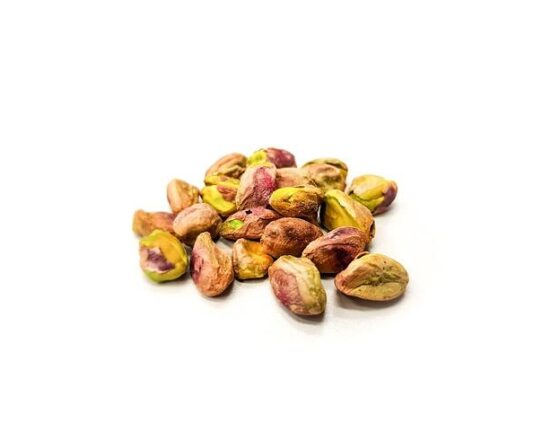In recent years, the quest for optimal gut health has transformed from a niche interest into a mainstream pursuit, drawing the attention of health enthusiasts adn experts alike. Central to this conversation are probiotics—beneficial bacteria that play a critical role in maintaining the delicate balance of our digestive microbiome. With an overwhelming array of probiotic strains and formulations available on the market, navigating through this complex landscape can be both exciting and daunting. Which supplements truly support gut balance, and how do we choose the right ones? This article will demystify the world of probiotics, exploring the specific strains, their unique characteristics, and how various formulations can impact our health.By examining the science behind gut health and the different options at our disposal, we aim to equip you with the knowledge to make informed decisions on your path to better digestion and overall well-being.
Understanding the Role of Probiotic Strains in Gut health
Probiotic strains play a pivotal role in maintaining gut health, serving as the kind bacteria your digestive system craves. Each strain is unique,offering distinct benefits that contribute to the overall balance of the gut microbiome. for example, Lactobacillus strains are known for their ability to break down lactose and produce lactic acid, which can inhibit the growth of harmful bacteria. Other strains, like Bifidobacterium, thrive in your intestines and are instrumental in promoting a healthy digestive environment. Together, these beneficial microorganisms work harmoniously to support immune function, enhance digestion, and even influence mood through the gut-brain axis.
when considering probiotic supplements, it is indeed essential to understand the specific strains included in each formulation. Some common types are:
- Lactobacillus rhamnosus: Supports intestinal health and aids in the management of diarrhea.
- Bifidobacterium lactis: Enhances the immune system and aids in the digestion of fiber.
- Saccharomyces boulardii: A yeast probiotic effective in preventing antibiotic-associated diarrhea.
It’s also worth noting that individual responses to probiotics can vary, and factors such as diet, lifestyle, and existing gut conditions can influence their effectiveness. As a result,personalized approaches to selecting probiotic strains may yield better outcomes,ultimately fostering a balanced gut landscape.

Exploring Diverse Formulations: Capsules,Powders,and Fermented Foods
When it comes to supporting gut health,the method of delivery is just as critically important as the probiotic strains themselves. Capsules offer a convenient and frequently enough more stable option for many users. They typically provide a precise dosage and protect the live cultures from stomach acids until they reach the intestines. However, for those seeking rapid absorption or specific health benefits, powders might be the better choice. These can be easily mixed into smoothies, yogurts, or even water, allowing for versatile consumption. In addition, powders frequently enough provide a greater variety of strains and higher dosages per serving compared to their capsule counterparts.
Another intriguing formulation type to consider is fermented foods. Examples include yogurt, kefir, sauerkraut, and kimchi, which not only contain a range of natural probiotics but also offer additional nutritional benefits such as vitamins and minerals. fermented foods harness the power of traditional food fermentation processes, creating a synergy of flavors and gut-friendly bacteria. It’s essential to explore these choices based on personal preferences, dietary needs, and lifestyle factors. Here’s a fast comparison of different formulations:
| Format | Pros | Cons |
|---|---|---|
| Capsules | Convenient: Easy to take; Stable: Protects probiotics. | Less Variety: Limited strain options; Slower Absorption: May take time to dissolve. |
| Powders | Versatile: Mixable in foods; Higher dosages: Often more potent. | Bulkier: May require measuring; Taste: some might not prefer the flavor. |
| fermented Foods | Nutrient-Rich: Additional probiotics and vitamins; Natural: Whole food source. | Sodium Content: Some can be high; Inconsistency: Varies in probiotic strains. |

Tailoring Probiotic Choices to Individual Health Needs
When it comes to selecting the right probiotics, it’s essential to consider individual health needs, as not all strains provide the same benefits. Personalized choices can lead to enhanced gut health and improved overall well-being. Here are some key factors to keep in mind when tailoring your probiotic selection:
- specific Symptoms: Addressing issues such as bloating, constipation, or diarrhea may require different strains.
- Health Conditions: Individuals with conditions like IBS or IBD may benefit from targeted formulations that cater specifically to these disorders.
- Age and Lifestyle: Children, pregnant women, and seniors may have varying probiotic needs, so age-appropriate options are crucial.
Selecting the right formulation can also be influenced by how probiotics are combined. Certain ingredients, such as prebiotics, can enhance the effectiveness of probiotics by providing a favorable environment for growth. Here’s a brief look at popular strains paired with their ideal combinations:
| probiotic Strain | Health Benefit | Recommended Complement |
|---|---|---|
| Lactobacillus rhamnosus | Digestion and mood balance | Inulin (a prebiotic) |
| Bifidobacterium lactis | Immune support | FOS (fructooligosaccharides) |
| Saccharomyces boulardii | Diarrhea relief | Prebiotic fibers |

Evaluating Efficacy: What Research Says About Probiotic Supplements
Research into the efficacy of probiotic supplements highlights a spectrum of findings, with some studies demonstrating notable health benefits, while others yield mixed results. One consistent theme is the variation in effectiveness depending on the specific strains used. For instance, strains such as Lactobacillus rhamnosus and Saccharomyces boulardii have shown promising results in managing gastrointestinal distress, while others may not produce the same benefits. it is essential to choose formulations with clear strain identification and target specific health needs, such as boosted immunity or improved digestion.
Furthermore, the delivery mechanism, including capsule versus powder form, can impact efficacy. Research suggests that viable probiotics need to survive stomach acid to reach the intestines, leading to a discussion about the need for enteric-coated capsules. The following table summarizes some of the well-researched probiotic strains alongside their potential benefits:
| Probiotic Strain | Potential Benefits |
|---|---|
| Lactobacillus acidophilus | Enhances gut health,supports lactose digestion |
| Bifidobacterium bifidum | boosts immunity,promotes digestive health |
| Saccharomyces boulardii | Aids in diarrhea treatment,mitigates antibiotic effects |
| Lactobacillus rhamnosus | Provides relief for IBS symptoms,balances gut flora |
Closing Remarks
In the quest for optimal gut health,the landscape of probiotics can often feel overwhelming. With an array of strains and formulations available, making informed choices is paramount. As we’ve explored, not all probiotics are created equal; each strain brings its own unique benefits and potential impacts on our microbiome. understanding the science behind these microorganisms, from Lactobacillus to Bifidobacterium, empowers you to tailor your supplementation to meet your specific health needs.
Ultimately,achieving gut balance is not merely about supplements; it’s a holistic journey that encompasses diet,lifestyle,and your unique body chemistry.While the right probiotic can certainly play a vital role in nurturing your gut flora, success lies in a balanced approach. As you navigate your path to improved digestive health,remember that consulting with healthcare professionals can provide personalized insights,helping you to harness the full potential of probiotics as part of a broader wellness strategy.
In closing, may your exploration into probiotics enrich your understanding of gut health and guide you towards a more harmonious relationship with your body. The power of a balanced gut beckons—are you ready to embrace it?















Leave feedback about this